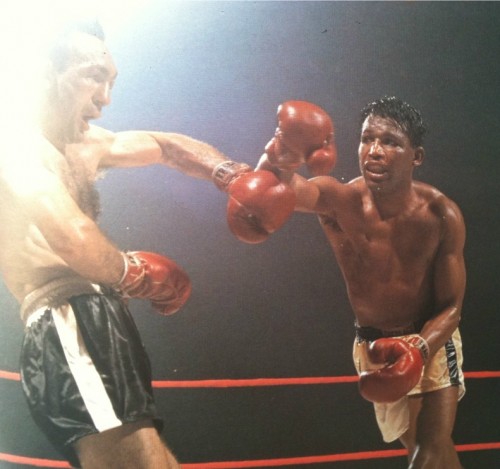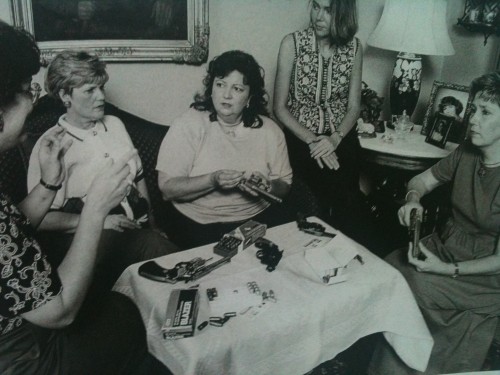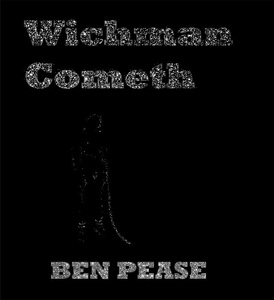wallop
And the trouble people took to attach a modern-sounding label to these texts and to create a special genre-haven’t there been short texts since way back when? So people were, perhaps they still are, fidgeting with blaster, sudden fiction, flash fiction, prose poem and attempting to segregate these texts. The quality of the thing ought to be foregrounded. -Diane Williams
I believe a reader must work harder in interpreting flash, filling in those gaps with his or her own experiences. -Kim Chinquee
I love the immediacy of the medium–of reading a story that is not only compressed, but memorable in the images that are presented. -Meg Tuite
I had long admired the very short stories of Kafka, Borges, Hempel, others, before I gave the idea of length any real thought. -Pamela Painter.
I’ve been very interested to see what different writers have done with the very short form. It can go in so many directions, and whether one chooses a sort of mini-essay or mini-narrative or prose poem, meditation, etc., each will be quite different because the mind of each different writer comes through so clearly–the writer’s way of thinking, viewing the world, and then of course his or her way of handling language. In such a short form, each word has to be right. -Lydia Davis
I think my stories start fairly short, somewhere in the neighborhood of 200-300 words, and often stay there. -Chella Courington
I’ve always read the shortest stories I could get my hands on. It’s always appealed, the power to receive the full scope of a piece, to tour all the feelings the writer wants you to feel in one uninterrupted moment. It’s so easy to be brutal without consequence to characters in the shortest form. -Amelia Gray
I also think it’s the least egotistical form of writing. Not a lot of show-offs go into writing flash. None that I know anyway. -Mary Hamilton
R.I.P. Charles Napier, 1936–2011. You will be missed but you will live on forever in your cinema! I’ll be watching Beyond the Valley of the Dolls soon in your honor… (P.S. Please give my regards to Mr. Thompson!)
FictionSpeak 1
For the next couple of months, I’m going to run this weekly series, FictionSpeak, because, well, I’m a poet trying to write fiction, which seems like it could be worth talking about.

I started writing fiction a few weeks ago. I’m writing this fiction in a square yellow sketchbook. Just like a poet to be writing fucking fiction in a square fucking sketchbook, you say. On top of that, I’m only writing on one side of the page. And I’m only writing in snapshots that will ostensibly form a novel. It’s probably a disgrace to fiction writers everywhere, what I’m doing. I don’t understand things about dialogue or character development. I really don’t understand plot. Zip. Zilcho. I think I’m decent at description and setting and emotional arc, poetical things, so then why am I not writing poems in my new fancy-pants sketchbook. Because I already have a black vinyl, lined notebook for poems, silly.
Originally, this fiction-in-a-sketchbook thing was going to be memoir. Then I read The Chronology of Water the other weekend. Then I picked up Sarah Manguso’s The Two Kinds of Decay, which I’m reading right now, and I thought two things. One, I don’t have the stuff of a memoir yet. Two, these books are great to read if you want to write fiction. For different reasons. Lidia Yuknavitch for voice and fierceness. Manguso for matter-of-factness and snapshot.
Back in grad school at ole Emerson, I’m pretty sure there was a fiction-writing-for-poets course, or maybe a poetry-for-fiction-writers course. I never took either. Navigating fiction makes me feel like I’m walking into a Templar initiation ceremony or something. It’s dark. There are candles. Robes. Dorky music. A guy in a mask with a sword doing degrading things to another guy who poses just the right way to look simultaneously mysterious and mastered.
Umm, nevermind.
My first question is this. Writing fiction forces me to dredge up weird shit from my past and use it with different characters and settings. I mean, I’m raping my life wholesale. Is that normal? Somebody said to me yesterday, “Change the facts enough so your family doesn’t recognize them.” My feeling is that I’ll change them just enough to fit the narrative, just enough to make them work for me. I mean, that’s what poets do…
The Other Poems interview with Paul Legault
Sam Ross: Paul, your book begins with an epigraph from bpNichol:
From there the book erupts into a series of sonnet-dialogues with a host of personages, personifications, and “others”–from Whales, to Celibacy, to Mayakovsky as a Pony. Are these dialogues a means of approaching a dialogue with the self (as bpNichol suggests), mocking attempts at such a dialogue, or are the Others meant to be fragments of a unified self or whole (I’m thinking of a title of one of the Other Poems which begins: “We are made up of smaller version of ourselves stacked up on top of the smaller versions of ourselves….”). Maybe all three? Also, look at this!
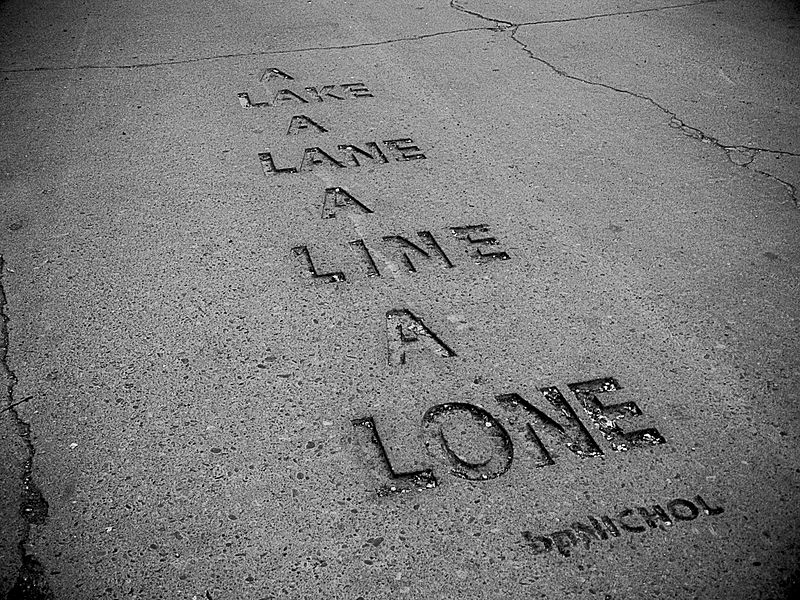
(I like this.) READ MORE >
Kate Zambreno Reading Tour
Kate Zambreno will be doing a reading tour to support her new book, Green Girl (Emergency Press). In a recent review of Green Girl Lightsey Darst of Bookslut wrote, “reading this book is like eating Oreos, if Oreos could be filled with spiders and simultaneously retain their addictive power.” Many of the dates will be with authors from the anthology Men Undressed: Women Writers on the Male Sexual Experience (OV Books). Also note, there is a reading with Laurie Weeks in NY on Oct 18–Laurie’s new book Zipper Mouth (Feminist Press) is explosive. Don’t even think about missing it.
October 6 – Seattle, Vermillion, 1508 11th Avenue between Pike and Pine, 7pm-10pm, with Litsa Dremousis and Kristen Thiel (of Men Undressed)
October 7 – Portland, Powell’s City of Books on Burnside, 1005 Burnside, 7:30pm, with Lidia Yuknavitch and Kristen Thiel (of Men Undressed)
October 14 – San Diego, &Now Festival of New Writing: Tomorrowland Forever
Two panels: “What’s that Mess? It’s Excess!” on Friday at 10am-11:15am with Amaranth Borsuk, Kate Durbin, Bhanu Kapil and Johannes Goransson (reading from forthcomingHeroines) and “Seeing Stars,” with Tisa Bryant, Roxanne Carter, Masha Tupitsyn and Ronaldo Wilson (I will read from Green Girl) on Friday from 6-7:15pm.
October 15 – San Francisco, LitCrawl, Sub/Mission Art Space, 2183 Mission Street, 7:15-8:15, with Aimee Parkison, Christine Zilka, Vicki Hendricks, and Vanessa Carlisle of Men Undressed
October 16 – Santa Cruz, New Cadence Poetry Series, Felix Kulpa Gallery, 107 Elm Street, 7:30pm, with Aimee Parkison and Vanessa Carlisle of Men Undressed
October 18 -New York, Dixon Place, 161a Chrystie Street on LES, 7-9pm with Laurie Weeks
October 28 – Chicago, Women and Children First, 5233 N. Clark Street, at 7pm, with Gina Frangello, Cris Mazza, and Susan Solomon of Men Undressed
October 30 – Chicago, The Nervous Breakdown Sunday Salon, Katerina’s, 1920 W. Irving Park, 8pm, with Joshua Mohr, Susan Solomon, and Richard Thomas
November 3 – Valencia, CA Visiting Writer at CalArts (reading from Green Girl and Heroines)
November 5 – Los Angeles, Skylight Books, with Kate Durbin
November 18 – Philadelphia, Moles not Molar reading series
November 20 – New York, Sunday Salon, with Men Undressed
I Felt Like I Was Part of Something
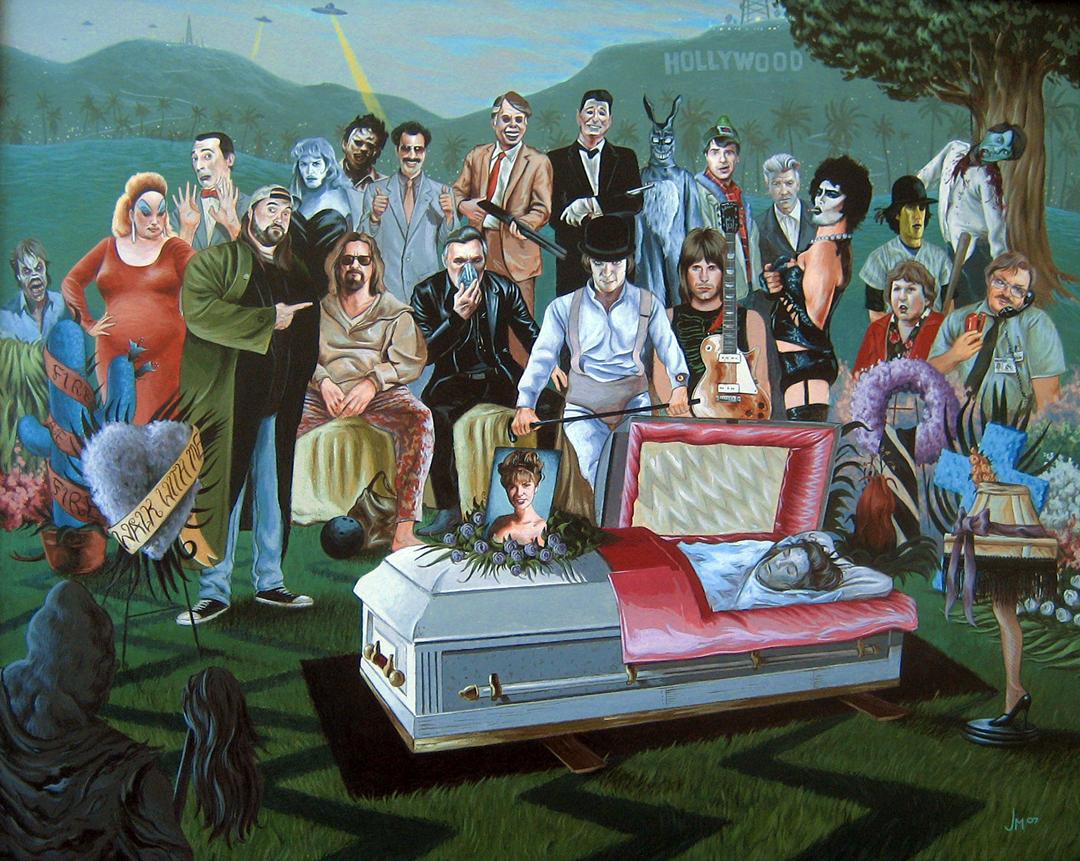
Last spring I graduated from my MFA program with a degree in fiction and was expelled into the wilds of a Pittsburgh recession with very few—if any!—marketable skills. I drank a lot and watched TV and cooked up elaborate theories about LOST involving a super intelligent ape named Joop mentioned only briefly during a second season viral campaign. Halfway through the summer I lucked into a few teaching gigs and ended up with a section of Intermediate Fiction Workshop. I always had vague notions of one day teaching college, but those were always hazy fantasies set deep in a future where I’d be a distinguished silver fox smoking cigars in some type of hover mansion. I wasn’t a TA during my MFA campaign and had no earthly idea if I was cut out to actually walk into a classroom and explain anything to students, let alone fiction, the thing in the world I care most about. As the summer wound down and I made stab after stab at a syllabus, I’d lie awake at night listening to the trains howl through Pittsburgh while trying not to vomit from crippling anxiety.
Classes began. Fall came and went. I was again unbelievably lucky and landed a section of Advanced Fiction in the spring which many of my Intermediate students signed up for. The process was endlessly humbling, mostly because of the students. I was shocked at how genuinely good so many of them were. I was ready for anything on that first day of class: from manic scribbles on a napkin to thousand page genre opuses. But these students were wonderful. They loved fiction as much as I did, and their enthusiasm hyped me up and I hope vice versa. By the time the academic year drew to a close, many of them were beginning to publish their work in journals I respected, and all of them had shown some pretty big improvements from the first day. And all of this from a workshop. The workshop!
I know some here don’t like to talk about teaching CW topics so I thought I would talk about teaching CW topics.
1. Last night visiting writer/professor said he doesn’t believe in grades. He assumes the writers in the class are writers and want to write—that’s what writers do, write. Isn’t a grade a carrot to make a writer write? That’s counterproductive. That causes non-writing. Also: Quit judging writing. Don’t make your class about judging writing. Make your class about writing, the act itself. He said, “I tell my students: You all have an A. If you show up, you have an A.” He said, “Sometimes I grab students who aren’t even in my class, you know students just walking around campus, and I tell them, ‘Join my class and you’ll get an A.’”
11. No cellphones active in class is a default. Why? What if you had a day where students wrote on their cellphones? What if you had the students text their work to a friend for a critique and you had them read what the friend said to the class? And so on. What if you built cellphone days into your pedagogy?
9. A student said to me yesterday, “I didn’t know professors could have long hair.” I said, “They can. If you do something well, people won’t bother you. That’s true in all professions. If you are the one guy who can fix the computers, you can keep a boa constrictor in your office. No one will say a thing.” His eyes flashed. Possibly he “went over to the dark side” (My term for when students switch majors to CW), or something. I felt happy for 11 seconds.
3. People still ask, “But does publishing online mean the same as publishing in print?” People still ask that. I mean like people deciding Promotion and Tenure. I mean Salary people. It makes my head do crinkly things. Do you still hear people asking that question, in academia? How does that question make you feel?
4. What do you think about messy offices? What do you think about messy offices and artists? How does it impact the perspective of students? I like to say, “Creative people makes piles of things.” I’m not sure if I am accurate. Is an office a reflection of…Is an office an important space at a university or just an office? I’m thinking out loud here, a phrase that makes little sense.
5. He said, “If you hear the word rigor, they start talking about rigor, hold onto your wallets.”
Ben & Amy Read Chapbooks: Gchat Edition
My friend Amy Lawless and I like to read chapbooks and review them on the internet. We used to write these together, while drinking wine and watching TV. We live in different cities now, so we did this one over gchat. Here are our recent reviews. We hope you buy these chapbooks:


